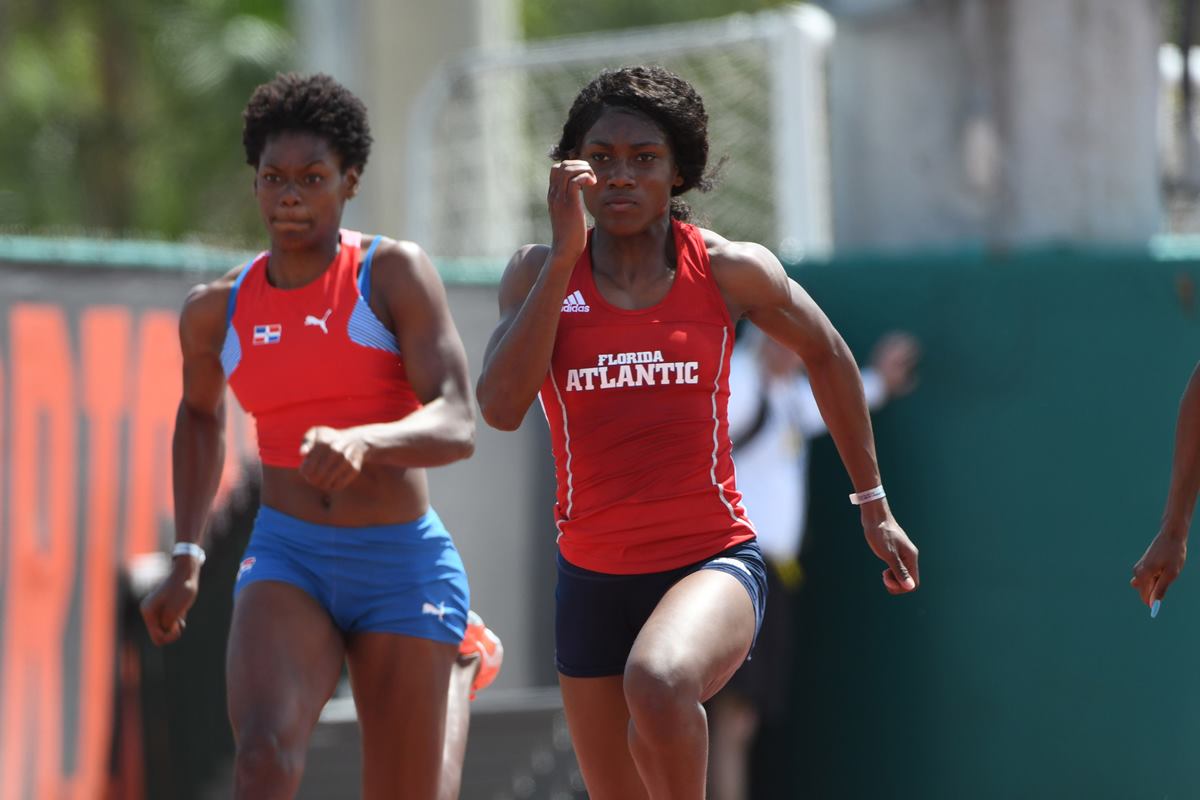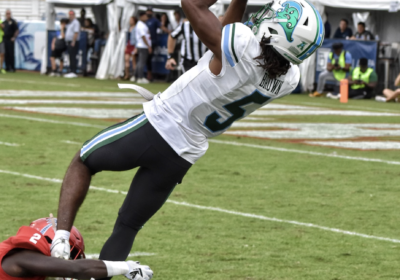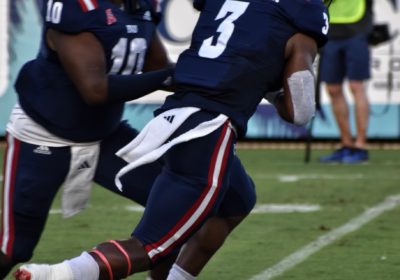[the_ad_group id=”632″]
UPDATE: 9:35 p.m. – Natalliah Whyte finished fourth in her heat with a time of 11:35. She did not advance to the finals.
BOCA RATON – Natalliah Whyte’s pursuit of the NCAA’s fastest woman title relies, somewhat counterintuitively, on her patience.
To win the 100 meters national title in this week’s NCAA track and field championships Whyte plans to explode from the starting block. But that start can’t be rushed.
Much like a pass-rushing defensive end, Whyte needs to fire her fast twitch muscles at the snap – in this case, the pop of the starter’s pistol – to blast from the blocks nanoseconds faster than her competitors, then remain low and drive her legs through those initial steps to reach top speed as quickly as possible.
Maintaining early leverage will propel Whyte to sack the finish line before other runners. Prematurely adopting an upright running position, the form she’ll feature 100 meters from the starting line, will only scrub speed.
“You have to react very, very quickly but a the same time you have to be patient, go through your drive phase, and not stand up immediately and try to run,” FAU coach Alex Smolka explained. “You basically have to let the body uncurl for the first 20, 25 meters to really end up hitting full stride. It takes patience because you might have somebody next to you who reacts slightly faster, and not to panic, and to really go through your phases is something that’s important to run fast.”
Whyte’s top-end speed is elite. Last year while running for Auburn the Jamaican-born Whyte finished second nationally, dashing through inclement weather to run an 11.24 in the finals.
A strong finisher, Whyte readily admits that slow starts are the major barrier to her claiming a national championship.
“I try not to overthink because that is when you tend to make mistakes,” Whyte said. “Focusing is the main thing.”
Whyte ran 100 meters in 11.17 seconds at Miami in the first meet of the season which, at that point in the year, was the fastest time in the nation.
Hampered by tendinitis in her left foot, a condition that’s improving but remains present, Whyte ran an 11:16 two weekends ago at the East regional meet in Jacksonville to qualify for this week’s national finals in Austin, Tex.
In doing so Whyte became the first FAU track and field athlete in the program’s 19-year history to reach the national meet.
“I think it means the world to us,” Smolka said. “We’re still a fairly young program, but having somebody finally make it to the pinnacle of collegiate track and field is very exciting for us.”
That Whyte competes in track and field’s premier event only elevates FAU’s stature.
“Definitely the 100 is a marquee event throughout history,” Smolka said. “Having somebody in the finals at the NCAA meet at the end of the year is very exciting, especially for a program in South Florida where sprints are pretty dominant.”
Only five of the 24 women who earned a berth in the national semifinals qualified with a better time than Whyte, led by LSU’s Sha’Carrie Richardson and Texas’ Teahna Daniels – both of whom ran 10.99s. The semifinals, which begin today at 9:15 p.m. and will be televised on ESPN2, are divided into three eight-runner heats, with the top two in each heat plus the two best remaining times advancing to the finals. The final eight run on Saturday for the national title.
Whyte departed for Austin confident that, at the very least, she can medal again this year.
“I think there’s a possibility, yes, that I can make it on the podium,” Whyte said.
Does she have the launch, the patience, and ultimately the speed to claim the national title?
“Anything is possibly, so I think I can win,” Whyte said.







Recent Comments